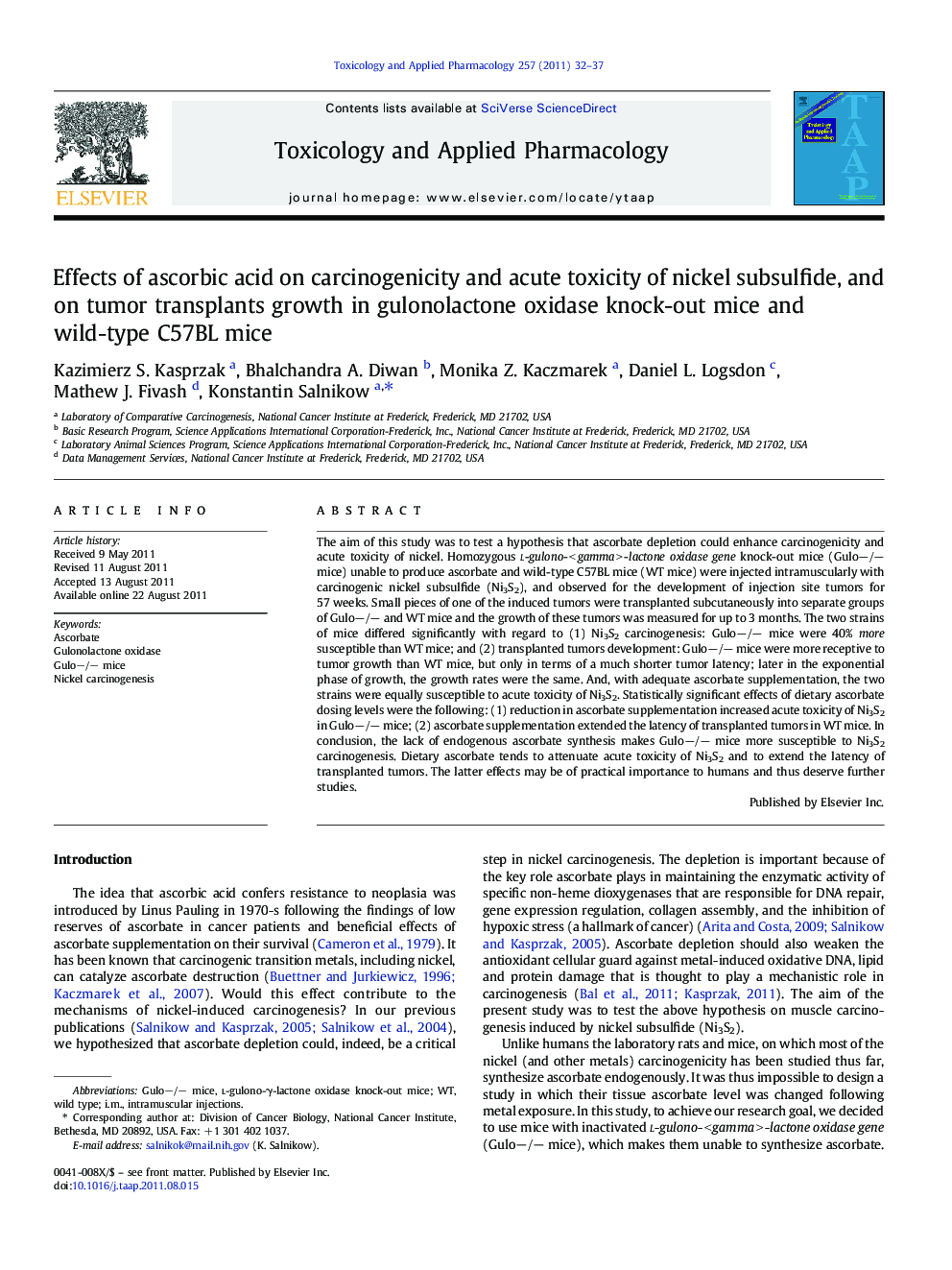| کد مقاله | کد نشریه | سال انتشار | مقاله انگلیسی | نسخه تمام متن |
|---|---|---|---|---|
| 2569200 | 1128517 | 2011 | 6 صفحه PDF | دانلود رایگان |

The aim of this study was to test a hypothesis that ascorbate depletion could enhance carcinogenicity and acute toxicity of nickel. Homozygous l-gulono- < gamma > -lactone oxidase gene knock-out mice (Gulo−/− mice) unable to produce ascorbate and wild-type C57BL mice (WT mice) were injected intramuscularly with carcinogenic nickel subsulfide (Ni3S2), and observed for the development of injection site tumors for 57 weeks. Small pieces of one of the induced tumors were transplanted subcutaneously into separate groups of Gulo−/− and WT mice and the growth of these tumors was measured for up to 3 months. The two strains of mice differed significantly with regard to (1) Ni3S2 carcinogenesis: Gulo−/− mice were 40% more susceptible than WT mice; and (2) transplanted tumors development: Gulo−/− mice were more receptive to tumor growth than WT mice, but only in terms of a much shorter tumor latency; later in the exponential phase of growth, the growth rates were the same. And, with adequate ascorbate supplementation, the two strains were equally susceptible to acute toxicity of Ni3S2. Statistically significant effects of dietary ascorbate dosing levels were the following: (1) reduction in ascorbate supplementation increased acute toxicity of Ni3S2 in Gulo−/− mice; (2) ascorbate supplementation extended the latency of transplanted tumors in WT mice. In conclusion, the lack of endogenous ascorbate synthesis makes Gulo−/− mice more susceptible to Ni3S2 carcinogenesis. Dietary ascorbate tends to attenuate acute toxicity of Ni3S2 and to extend the latency of transplanted tumors. The latter effects may be of practical importance to humans and thus deserve further studies.
► Ascorbate depletion enhances carcinogenicity and acute toxicity of nickel.
► Gulo−/− mice unable to synthesize ascorbate were used in this study.
► The reduction in ascorbate levels in Gulo−/− mice increased acute toxicity induced by Ni3S2.
► Gulo−/− mice were found to be 40% more susceptible than WT mice to nickel-induced carcinogenesis.
Journal: Toxicology and Applied Pharmacology - Volume 257, Issue 1, 15 November 2011, Pages 32–37